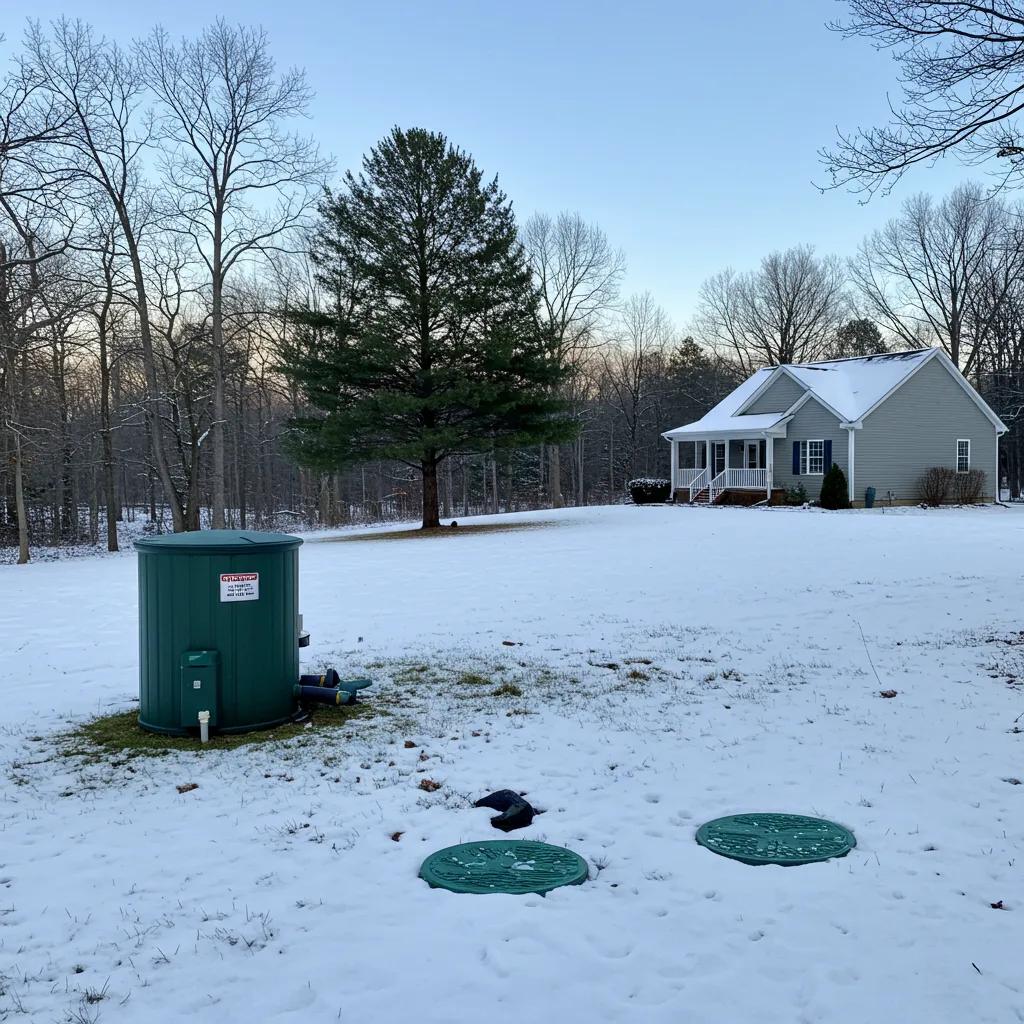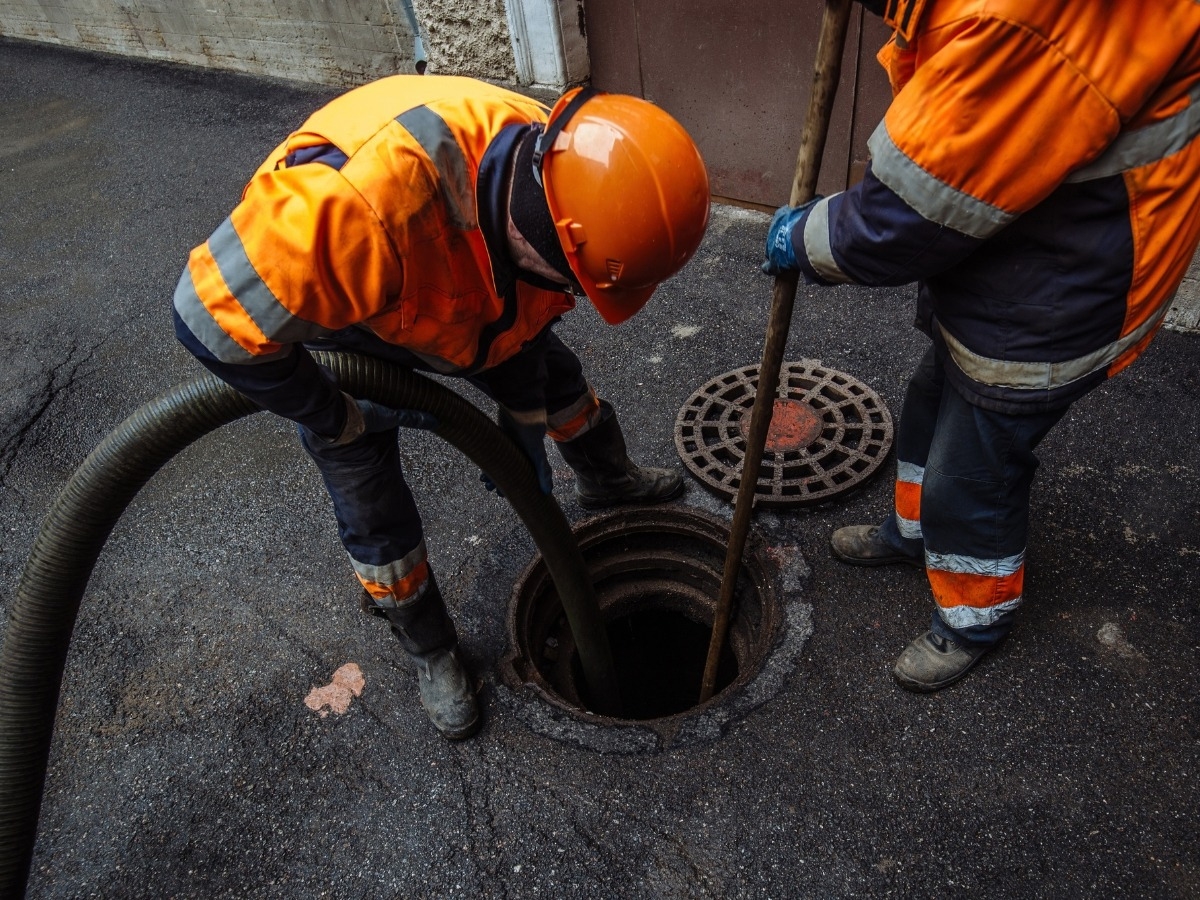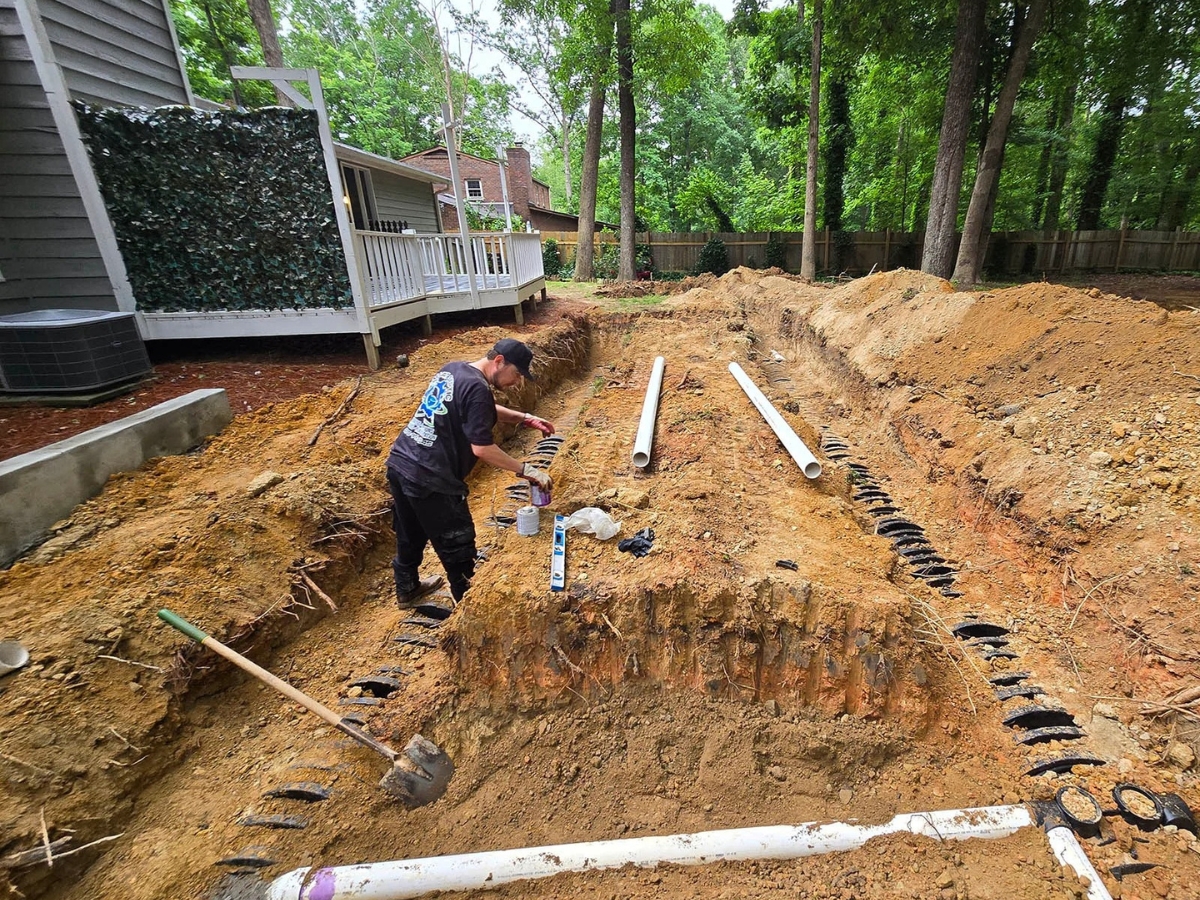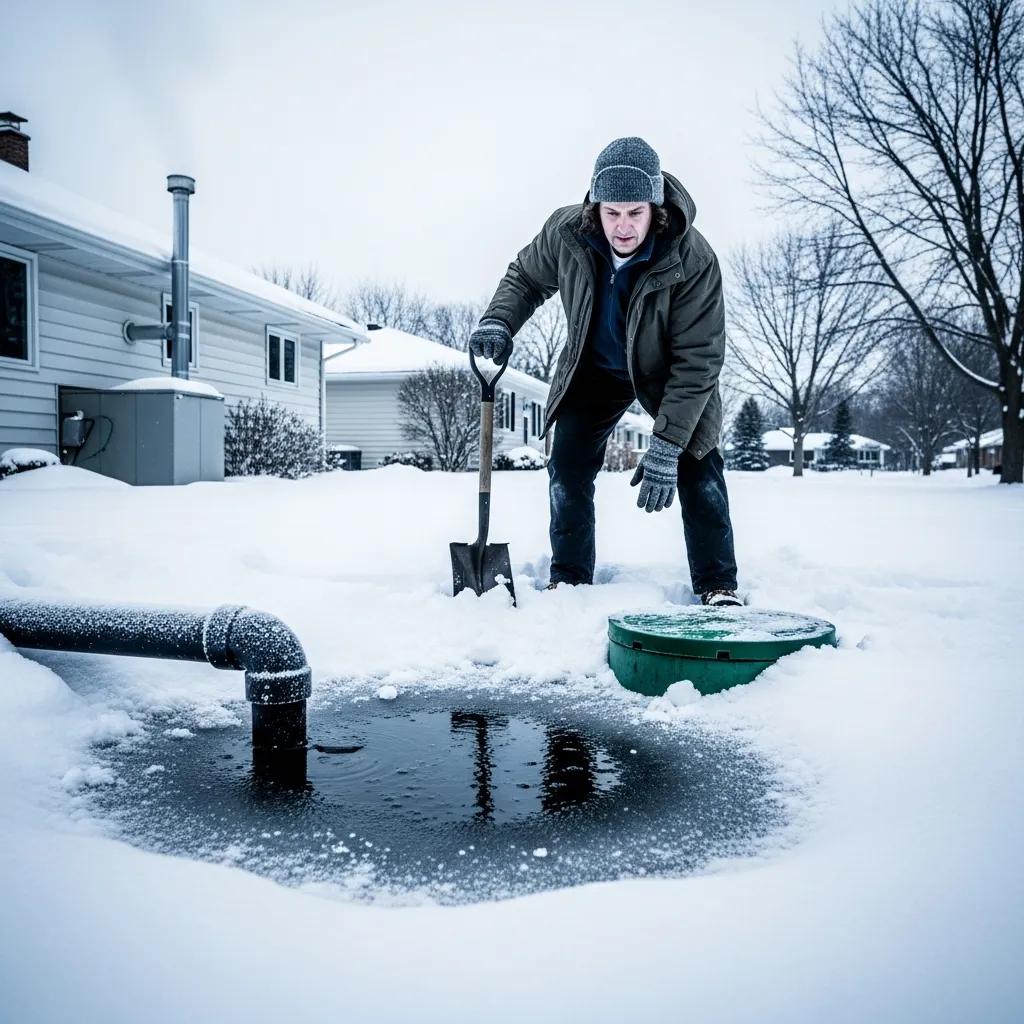Completing a year-end septic checklist Kennesaw, GA, is one of the most important steps you can take to prevent emergencies, extend the life of your system, and avoid costly repairs in the new year. As winter approaches, factors like increased holiday usage, colder temperatures, and seasonal rainfall can strain your septic tank and drain field if they aren’t properly maintained.
In this guide, we’ll provide a practical, step-by-year-end septic checklist—from inspecting components and measuring sludge levels to scheduling a professional pumping—so you can enter the colder months with confidence and keep your system functioning smoothly all year long.
The Year-End Septic Checklist Kennesaw Homeowners Can’t Skip
Why Is Year-End Septic Maintenance Crucial for Kennesaw Homeowners?
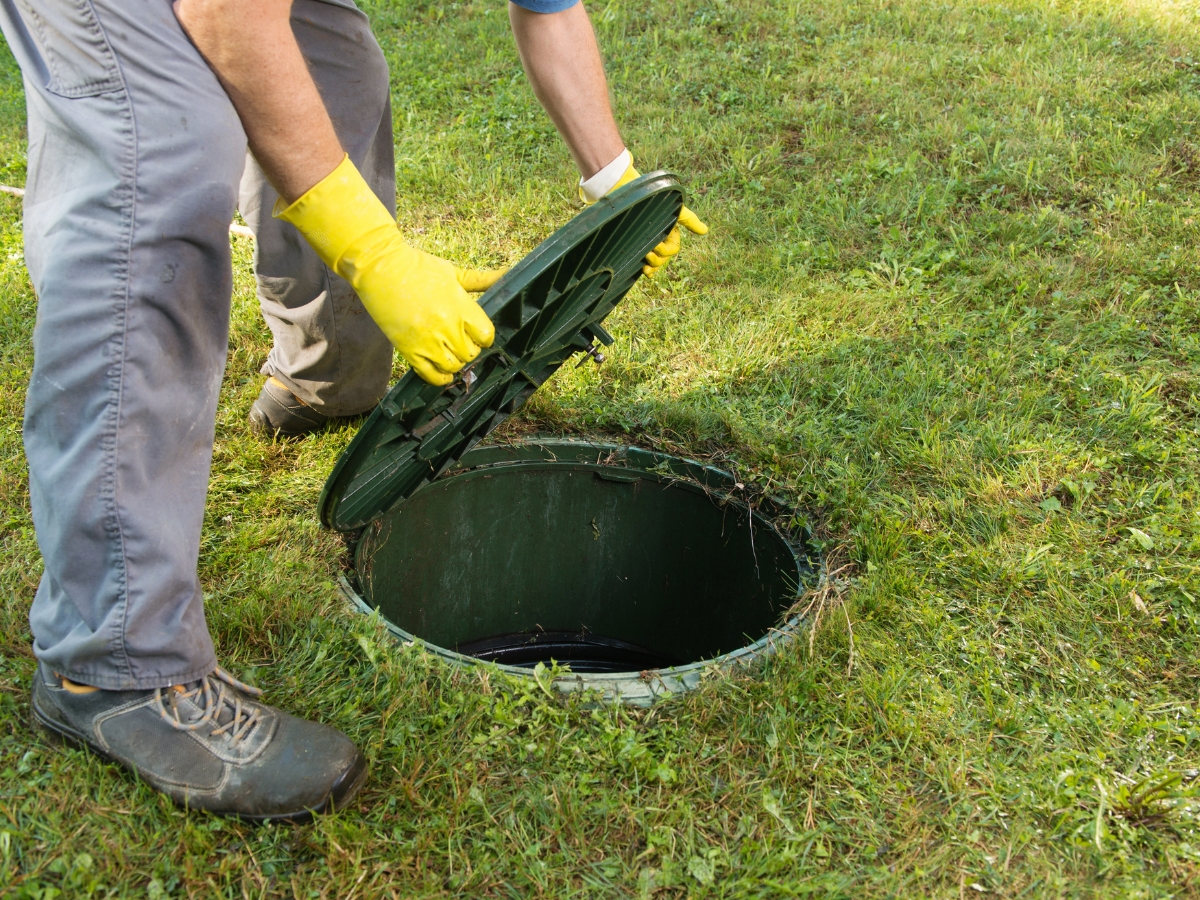
Year-end septic maintenance is a preventive program that reduces the risk of backups and system failure by addressing solids, filters, vents, and drain-field conditions before winter. It’s simple: lowering solids and verifying flow paths prevents freezing-related blockages and preserves biological activity inside the tank, which keeps effluent processing efficient. This preventive approach saves you money compared with emergency repairs and protects groundwater from contamination. The next sections explain Kennesaw’s climate effects, the risks of neglect, and how holiday water use increases system strain.
How Does Kennesaw’s Winter Climate Affect Septic Systems?
Kennesaw’s winter climate combines periodic freezes with occasional heavy rains that influence soil saturation and heat loss around septic components, and the interaction of these factors can impede drain-field percolation. Freezing temperatures can cause exposed pipes and vents to ice over, while saturated soil reduces oxygen in the drain field and slows effluent absorption, which increases surface pooling risk. It’s important to recognize that heat-retaining cover, appropriate insulation, and avoiding compaction all mitigate these effects. These mitigation steps lead naturally into the specific risks of skipping year-end maintenance and how those risks translate to direct repair costs.
What Are the Risks of Neglecting Year-End Septic Care?
Neglecting year-end septic care increases the odds of sewage backups, drain-field failure, and accelerated component wear because solids accumulate and biological processes slow in cold conditions. Immediate consequences include slow drains and foul odors that indicate system distress, while longer-term neglect often results in drain-field replacement or pump repairs that cost far more than routine pumping and inspection. Environmental risks include surface runoff contamination and local groundwater impacts that may trigger health department involvement. Preventative maintenance reduces these risks, and the cost comparison between routine care and major repairs favors scheduling inspections and pumping before winter arrives.
How Does Increased Holiday Usage Impact Septic System Performance?
Holiday gatherings raise water use and solids discharge through extra laundry, dishwashing, showering, and waste from guests, which together elevate hydraulic load and solids accumulation inside the tank. It’s a cumulative effect: repeated high-volume cycles reduce retention time, which lets solids enter the outlet and stresses the drain field, especially when biological activity is slower in cold months. Practical homeowner strategies include staggering laundry and dishwasher loads, limiting garbage-disposal use, and avoiding excessive grease disposal to decrease system strain. These household behaviors directly support the professional maintenance steps described in the next checklist section.
What Is Included in a Comprehensive Year-End Septic Checklist for Kennesaw, GA?
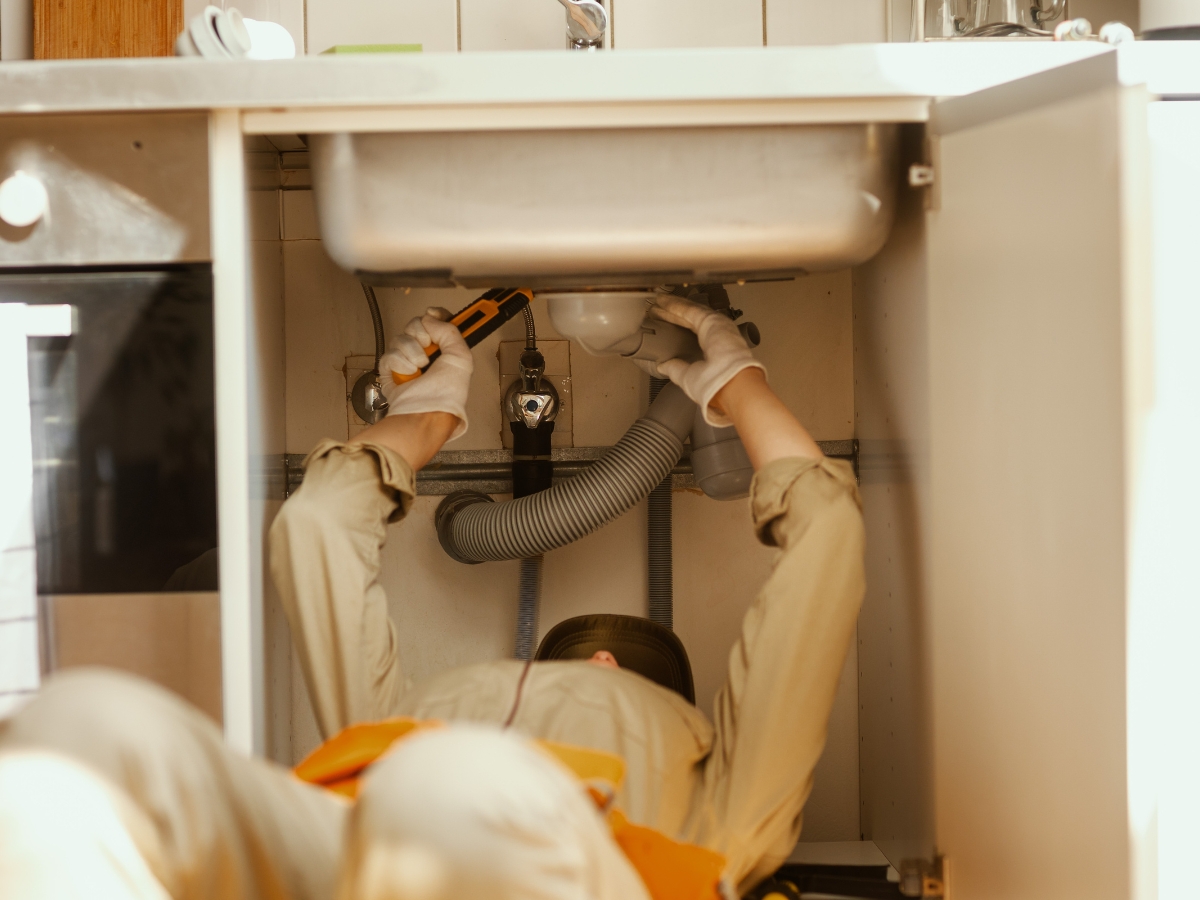
A comprehensive year-end septic checklist includes professional inspection, pre-winter pumping if needed, drain-field protection, pipe and riser insulation, and household behavior adjustments to reduce hydraulic load. This checklist ensures the septic tank, baffles, effluent filter, vents, and pipes are functioning and that the drain field is shielded from compaction and runoff. Start with a professional inspection to verify baffles and filters, then schedule pumping if solids approach the recommended capacity before freezing conditions. After professional steps, implement drain-field protection and household water-conservation tactics to reduce winter risk.
When to schedule a professional inspection and consider pumping is often a homeowner’s first decision:
- Professional Inspection Timing: Annual inspections before the first hard freeze help detect failing baffles, clogged filters, or compromised pipes. Inspections reveal early issues that worsen with freeze–thaw cycles and can be scheduled based on household size and recent system behavior.
- Pre-Winter Pumping Rationale: Pumping in late fall lowers solids that can cause blockages or ice formation in cold weather and preserves adequate liquid volume for biological processing. Indicators for pumping include slow drains, recent house guests, or absence of pumping in the last 3–5 years.
- Drain-Field Protection Steps: Insulate with mulch, avoid driving or parking over the field, and reroute roof and yard runoff away from the area to maintain percolation and avoid soil compaction.
- Water ConservationPractices: Fix leaks, install low-flow fixtures, and stagger high-volume tasks to reduce peak hydraulic loads during cold snaps.
- Flushables to Avoid: Do not flush wipes, grease, feminine products, or harsh chemicals; these items clog pipes and damage beneficial bacteria.
- Insulation of Exposed Components: Wrap exposed pipes and cover risers with insulating materials while keeping vents clear for aerobic balance.
The following table compares key maintenance actions by recommended frequency, typical cost range, and the specific Kennesaw benefit to help you prioritize year-end tasks.
| Maintenance Action | Recommended Frequency | Typical Cost Range | Kennesaw-Specific Benefit |
|---|---|---|---|
| Professional Inspection | Annually or pre-winter | $150–$350 (varies) | Detects baffle/filter/pipe issues before freeze cycles |
| Septic Tank Pumping | Every 3–5 years or before winter if near capacity | $250–$600 (varies) | Reduces solids that can cause freezing and backups |
| Drain-Field Protection (mulch/cover) | Seasonal (apply before first freeze) | $50–$300 (DIY/professional) | Insulates soil, improves percolation after thaw |
| Pipe/Riser Insulation | As-needed before freeze | $20–$150 | Prevents exposed pipe freezing and protects vents |
This comparison helps you weigh short-term expenses against winter-specific benefits in Kennesaw; prioritizing inspection and timely pumping often delivers the largest risk reduction for the cost involved.
A Comprehensive Septic Maintenance Checklist for Kennesaw Homeowners

Warning signs indicate when a septic issue requires prompt action; early recognition lets you limit damage by stopping water use and calling for professional assessment. The most urgent symptoms are slow drains across multiple fixtures, gurgling vents, pooling water or saturated lawn near the drain field, and persistent foul odors inside or outside the home. Understanding these signs helps you differentiate seasonal, temporary issues from system failures that demand emergency response. The following list highlights the top warning signs to watch for and the immediate homeowner actions to mitigate harm.
- Slow or clogged drains in multiple fixtures: Multiple slow drains suggest system-level backup rather than a single-pipe clog.
- Gurgling sounds from drains or toilets: Gurgling often indicates trapped air from a partial blockage or failing venting.
- Pooling wateror saturated lawn near drainfield: Surface pooling can be a sign of drain-field saturation or tank overflow.
- Persistent foul sewageodors: Odors signal venting issues or leakage from the tank or drain field that require professional attention.
If you observe multiple warning signs, restrict water use, isolate affected areas, and arrange for immediate inspection; early, measured responses reduce repair scope and protect household health.
Use the quick triage table below to match symptoms with likely causes and immediate steps to help you decide whether to perform DIY checks or contact professional services.
| Symptom | Likely Cause | Immediate Recommended Action |
|---|---|---|
| Slow drains in several fixtures | Partial blockage or failing drain field | Stop water use, check multiple fixtures, call for inspection |
| Gurgling noises | Venting issue or partial blockage | Avoid heavy water use, document frequency, schedule service |
| Pooling water near yard | Drain-field saturation or tank overflow | Keep people/pets away, minimize water use, call pro |
| Foul odors inside/outside | Tank leak, vent blockage, or surface leakage | Ventilate area, avoid exposure, arrange inspection |
This triage table provides a quick decision framework that helps you determine the urgency of professional intervention and the immediate steps to minimize damage.
How to Identify Slow Drains and Gurgling Sounds as Septic Issues?
Slow drains that affect multiple fixtures are a system-level sign because they show reduced effluent flow or partial outlet blockage, while gurgling sounds typically indicate air trying to escape past a restriction or a venting problem. To test if the issue is septic-related, check if sinks, tubs, and toilets across your home all drain slowly; if so, stop water use and document when symptoms occur. Avoid strong chemical drain cleaners because they damage beneficial bacteria; instead, schedule a professional inspection to evaluate baffles, outlet tees, and venting. Early professional intervention often prevents escalation into a full backup that requires more invasive repairs.
What Does Pooling Water or Foul Odors Indicate About Your Septic System?
Pooling water near the drain field usually indicates that the field is saturated or that the tank is overflowing, and foul sewage odors point to surfacing effluent or venting failures that compromise indoor and outdoor air quality. Both conditions pose health and environmental risks—exposure to sewage can carry pathogens and contaminants—and they often require immediate professional assessment to locate leaks or restore proper percolation. You should restrict access to affected areas, avoid using outdoor water near the field, and contact a licensed provider for evaluation and corrective measures. Prompt action reduces long-term damage and potential regulatory attention.
When Should You Contact Emergency Septic Services in Kennesaw?
Contact emergency septic services immediately for raw sewage backups inside the home, extensive pooling that persists despite reduced water use, or any situation where human exposure to sewage is likely, because these are public health emergencies requiring rapid containment. Until help arrives, stop all water use, isolate contaminated areas, and keep children and pets away from affected zones; document the signs to help our technicians diagnose the problem quickly. For non-life-safety issues such as single slow drains, schedule an expedited inspection rather than an emergency response, but do not ignore progressive symptoms. Rapid, appropriate escalation preserves property and reduces overall repair costs.
How Does Smart Septic Pros Support Your Year-End Septic Checklist Kennesaw?
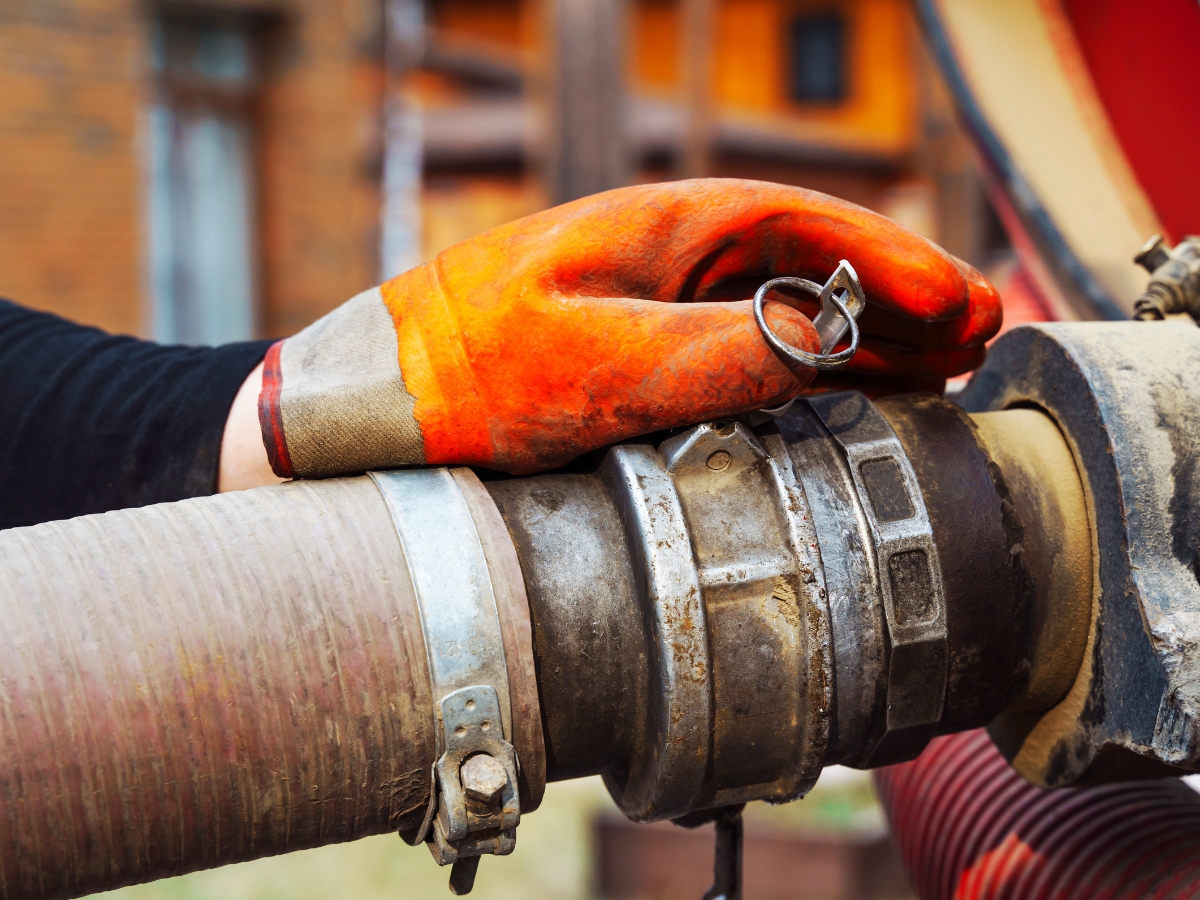
As the year ends, homeowners in Kennesaw often turn their attention to essential septic maintenance tasks that prevent costly issues in the months ahead. A complete year-end septic checklist in Kennesaw includes tank inspections, routine pumping, drain field care, and cold-weather preparation. Smart Septic Pros aligns its services with these needs, providing expert evaluations and maintenance strategies tailored to Georgia’s soil and seasonal conditions. Licensed technicians use advanced diagnostic tools to identify early warning signs of clogs, leaks, or drainage inefficiencies before they escalate into major problems. Their focus on preventative care helps extend the life of septic systems while keeping them environmentally sound and compliant with local regulations.
What Makes Licensed Septic Technicians Essential for Year-End Maintenance?
Working with licensed professionals ensures that inspections and repairs meet state and county standards, protecting both property value and groundwater safety. Smart Septic Pros’ technicians are experienced in diagnosing septic issues common to the Kennesaw area, including clay-heavy soils, shallow drain fields, and winter moisture buildup. Their process typically includes assessing baffles, filters, and tank levels, along with testing drainage flow and venting systems. Accurate inspections prevent unnecessary digging and help homeowners plan efficient service schedules based on real system performance. This level of expertise keeps your septic system functioning reliably throughout winter and beyond.
How Does Transparent Pricing Help With Septic Care Planning?
Clear and predictable pricing plays an important role in consistent septic upkeep. Transparent quotes for inspections, pumping, and winterization allow homeowners to plan maintenance without fear of surprise costs. This proactive approach supports timely care, which is far more affordable than emergency repairs or drain field replacement. Knowing the cost and timing of maintenance also helps property owners manage long-term budgets and prevent financial strain during peak repair seasons. Regular upkeep guided by transparent pricing is a practical way to protect both your investment and your household’s sanitation.
Why Is an Eco-Friendly Septic Strategy Important for Kennesaw Homes?
Environmental awareness is central to effective septic care in Georgia. Eco-friendly maintenance protects the beneficial bacteria within the tank that naturally break down waste and keeps harmful chemicals from entering local water sources. Smart Septic Pros promotes sustainable methods like biological-safe cleaning products, proper grease disposal, and mindful landscaping around drain fields. These small choices maintain system balance and contribute to cleaner groundwater for the community. A well-maintained system also runs more efficiently, lowering the chance of overflow or contamination.
Preparing Your Septic System for the Year Ahead
Completing your year-end septic checklist Kennesaw helps safeguard your property against backups, foul odors, and costly damage. Scheduling an inspection, confirming tank capacity, and protecting drain fields from excess water or freezing conditions are key to starting the new year with a reliable system. When done correctly, these steps preserve performance, improve safety, and support long-term environmental health. Regular maintenance not only prevents emergencies but also gives homeowners peace of mind knowing their septic system is ready for another year of dependable service.
How Can You Prepare Your Septic System for Kennesaw’s Winter Season?
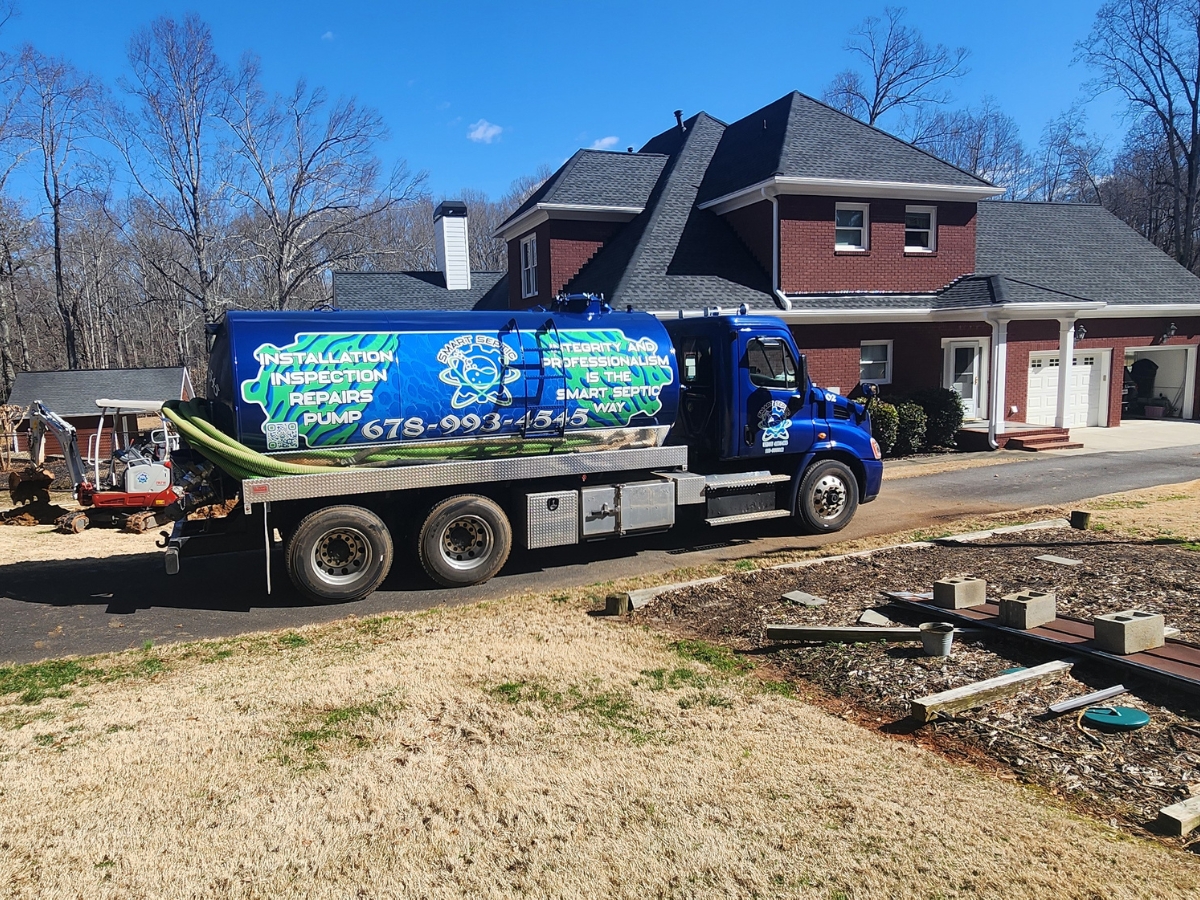
Preparing your septic system for winter involves insulating exposed components, maintaining appropriate tank levels, protecting the drain field from compaction and runoff, and adjusting household water use during cold weather. These preparation steps reduce freezing risk, preserve biological activity in the tank, and prevent hydraulic overloads during holiday periods. A coordinated approach—combining DIY insulation, behavioral adjustments, and professional inspection or pumping—delivers the most reliable protection against winter failures. The following best practices outline specific actions you can take to winterize septic tanks, pipes, and drain fields.
- Insulate exposed pipes and risers: Wrap with foam insulation or cover with mulch/hay, ensuring vents remain clear to allow gas exchange.
- Maintain proper tanklevels: Avoid letting tanks sit overfilled before freeze temperatures; pump late fall if near capacity.
- Protect the drainfield: Add insulating mulch, prevent compaction, redirect downspouts and surface drainage away from the area.
- Schedule inspection/pumping before hard freeze: Professional checks catch baffle or outlet problems that worsen in cold.
- Use water-conserving behaviors: Stagger laundry and dishwasher loads and repair leaks to lower hydraulic stress.
The table below maps septic components to winterization actions and estimated implementation time/cost so you can prioritize tasks based on risk and budget.
| Septic Component | Recommended Action | Estimated Time/Cost |
|---|---|---|
| Tank (interior) | Inspect baffles/filters; pump if near capacity | 1–3 hours / $150–$600 |
| Exposed pipes/risers | Insulate wraps or add mulch cover; keep vents open | 30–90 minutes / $20–$150 |
| Drain field | Apply mulch, prevent compaction, redirect runoff | 1–4 hours / $50–$300 |
| Vents & Access Lids | Clear obstructions and secure lids | 30–60 minutes / minimal cost |
Prioritize inspection and pumping when indicated, insulate exposed components, and protect the drain field to minimize freezing risk; combining DIY actions with professional services yields the best outcomes for Kennesaw homes.
What Are the Best Practices for Preventing Septic System Freezing?
Preventing system freezing requires maintaining liquid levels, insulating exposed pipes and risers, and preserving an insulating vegetative cover over the drain field; these measures reduce heat loss and protect flow lines. You should add a thick layer of mulch or straw over the drain field before the first freeze and avoid removing snow cover unnecessarily, as a natural blanket helps retain soil warmth. Keep vents unobstructed to allow gas exchange while preventing drafts from exposing components to direct cold. When in doubt, schedule a professional winterization check to verify that insulation measures are adequate and to address areas where pipes are shallow or exposed.
How Should You Adjust Water Usage During Cold Weather?
Adjust water usage by spreading laundry and dishwasher cycles across multiple days, reducing long consecutive showers, and avoiding draining large amounts—like hot tubs—during freezing spells to prevent hydraulic overload and sluggish biological processing. Fix leaks promptly; even small, continuous flows increase your tank‘s hydraulic load and can push solids into the outlet during cold months. Encourage guests to follow water-use guidelines during holidays and use low-flow fixtures where practical to lower overall strain. These behavior changes work in tandem with mechanical winterization to maintain system balance through colder periods.
What Local Regulations Affect Septic Maintenance in Kennesaw, GA?
Local regulations for septic maintenance and repair are overseen by county health departments and the Georgia Department of Public Health, which set permit and installation standards you must follow for major repairs or drain-field modifications. Before performing drain-field expansion, replacement, or significant alteration, consult local authorities to verify permit requirements and acceptable practices for wastewater handling. For routine inspection and pumping, licensed technicians usually comply with health-code disposal and reporting requirements, and they can advise on documentation you may need. Verifying permits and following official guidance reduces regulatory risk and ensures compliant repairs.
Frequently Asked Questions
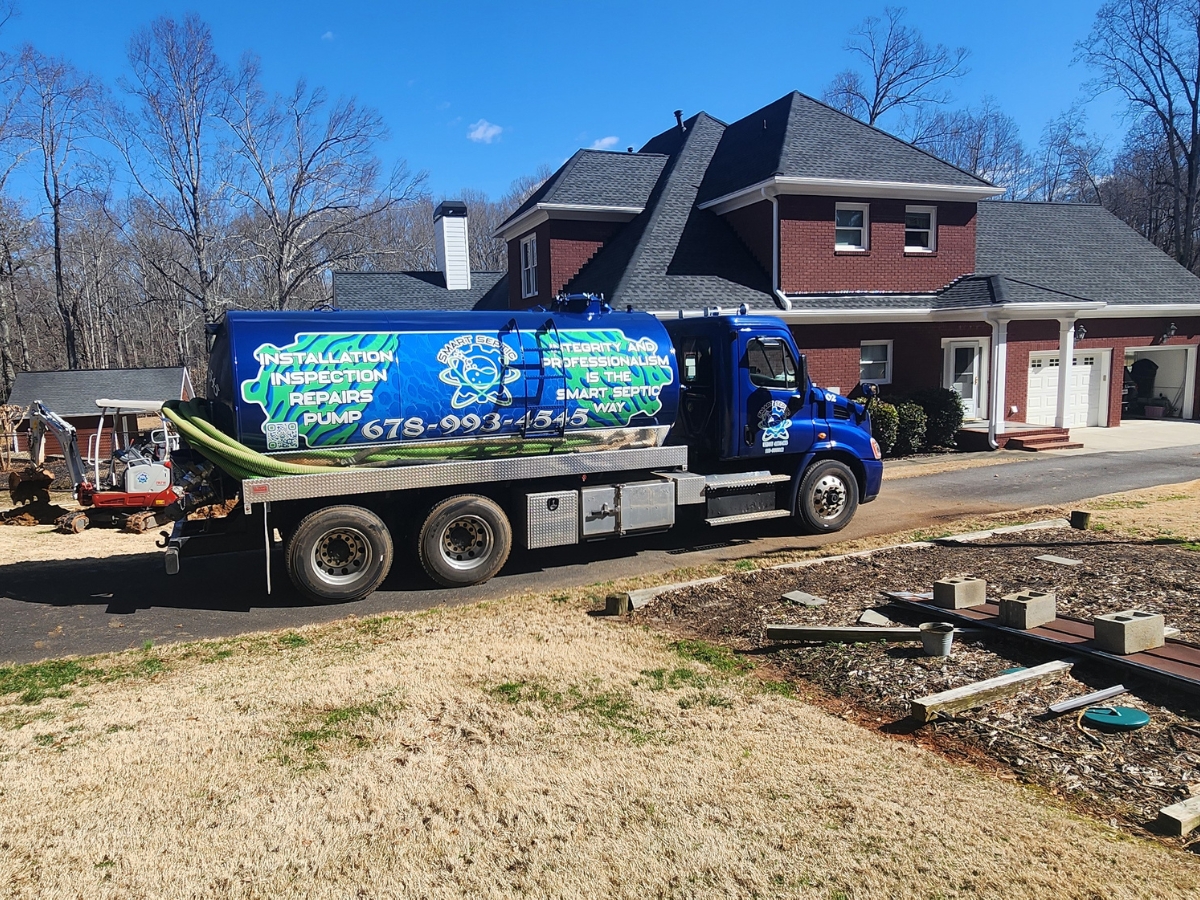
What should I do if I notice foul odors near my septic system?
If you detect foul odors near your septic system, it may indicate a leak or venting issue. These odors can pose health risks and suggest that sewage is escaping from the tank or drain field. It’s crucial to restrict access to the area and minimize your water use immediately. Contact a licensed septic professional for an inspection to identify the source of the odor and recommend necessary repairs. Early intervention can prevent more severe issues and costly repairs down the line.
How can I tell if my septic tank is full?
Signs that your septic tank may be full include slow drains, gurgling sounds from plumbing fixtures, and pooling water around the drain field. If you experience these symptoms, it’s essential to schedule a professional inspection. Regular pumping every 3-5 years can help prevent overfilling, but if you notice these signs, it may indicate that your tank needs immediate attention. Monitoring your system’s performance can help you avoid backups and costly repairs.
What are the best practices for winterizing my septic system?
To winterize your septic system, start by insulating exposed pipes and risers with foam or mulch. Ensure that your tank is at the proper liquid level by scheduling a pump-out if necessary. Protect the drain field by adding mulch and redirecting runoff away from the area. Additionally, adjust your water usage during cold spells by staggering laundry and dishwashing loads. These practices help maintain your system’s function and reduce the risk of freezing and backups during winter months.
Can I use chemical drain cleaners in my septic system?
It is not advisable to use chemical drain cleaners in a septic system. These products can kill beneficial bacteria that are essential for breaking down waste in the tank. Instead, consider using natural alternatives or mechanical methods to clear clogs. If you experience persistent drainage issues, it’s best to consult a professional septic service for a thorough inspection and appropriate solutions that won’t harm your system.
How do I know when to call for emergency septic services?
Contact emergency septic services if you experience raw sewage backups inside your home, extensive pooling of wastewater in your yard, or persistent foul odors that indicate a serious issue. These situations pose immediate health risks and require rapid containment. Until help arrives, stop all water use and keep children and pets away from affected areas. Document the symptoms to assist technicians in diagnosing the problem quickly upon their arrival.
What local regulations should I be aware of regarding septic maintenance?
In Kennesaw, local regulations for septic maintenance are governed by the county health department and the Georgia Department of Public Health. These regulations dictate permit requirements for major repairs, installations, and modifications to septic systems. You should consult local authorities before undertaking significant work to ensure compliance with health codes and standards. Regular inspections and pumping by licensed professionals also adhere to these regulations, helping to maintain system integrity and environmental safety.
What are the environmental impacts of neglecting septic system maintenance?
Neglecting septic system maintenance can lead to environmental contamination, including groundwater pollution and surface runoff issues. When a septic system fails, untreated sewage can escape into the environment, posing health risks to humans and wildlife. This can also lead to costly repairs and regulatory fines. Regular maintenance, including inspections and pumping, helps prevent these issues, ensuring your system operates efficiently and protects local ecosystems.
How often should I pump my septic tank in Kennesaw, GA?
Most households should pump every 3–5 years, with higher-frequency pumping for large households or those using garbage disposals regularly. The exact interval depends on tank size, household occupancy, and solids generation; systems with more people or heavy kitchen waste often require annual or biennial pumping. Regular inspection helps refine the schedule by measuring sludge and scum levels, and pumping before winter prevents solids-driven blockages that are harder to address in cold weather. Scheduling pumping based on inspection findings offers the best balance between cost and risk reduction.
What are the consequences of neglecting septic system maintenance?
Neglect can lead to sewage backups, drain-field failure, environmental contamination, and expensive repair or replacement bills that far exceed routine maintenance costs. Neglect often leads to failure when solids escape the tank, clogging the drain field, and creating anaerobic conditions that stop effluent absorption, which then requires excavation or field replacement. Preventative maintenance—inspections, timely pumping, and protecting the field—costs a fraction of major repairs and preserves property use and resale value. Addressing small signs early avoids cascading failures and regulatory complications.
How can I tell if my septic system is failing this winter?
Top winter indicators of failure include persistent pooling over the drain field, sewage odors inside or outside the home, slow drains across multiple fixtures, and toilet backups; these signs usually reflect saturation or mechanical failure. You should reduce water use immediately and schedule a rapid inspection when multiple indicators appear, documenting the timing and location of symptoms to help technicians diagnose the root cause. Avoid DIY chemical treatments and maintain safety by keeping people and pets away from contaminated areas. Professional diagnosis distinguishes seasonal slowdowns from structural failures.
What should I avoid flushing down the toilet to protect my septic system?
Avoid flushing wipes (even those labeled flushable), feminine hygiene products, grease, paint, solvents, and harsh chemicals because they clog pipes, accumulate solids, and kill the beneficial bacteria that digest waste. Pharmaceuticals and antibacterial agents can disrupt the septic microbiome, reducing treatment efficiency and increasing the risk of solids migration into the drain field. Proper disposal of these items in household trash and using grinders or disposers sparingly preserves system function. Educating your household members and guests about flushing rules is a cost-effective prevention strategy.
How does winter weather impact septic systems in Kennesaw, GA?
Winter weather impacts septic systems by increasing freeze risk for exposed pipes, reducing biological activity inside the tank, and creating saturated soil conditions that impede drain-field percolation during thaw cycles. Preventive measures such as insulating risers and pipes, applying mulch over the drain field, and conserving water during cold snaps reduce these impacts and maintain system function. Combining these actions with pre-winter inspection and pumping ensures your system is less vulnerable to winter stresses and recovers more quickly during thaw periods.
Conclusion
Completing a year-end septic checklist Kennesaw is one of the most important steps you can take to protect your Kennesaw home from costly emergencies and ensure your system operates smoothly throughout the new year. At Smart Septic Pros, we make year-end septic maintenance simple and stress-free with expert inspections, pumping, and repairs tailored to your system’s needs. Don’t wait for a problem to arise—call 678-993-4545 or use our contact form today to schedule your service and start the new year with complete peace of mind.
